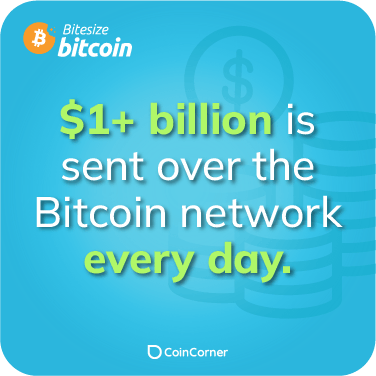How much is transacted over the Bitcoin Network daily?

People choose to use the Bitcoin network to perform transactions daily for several reasons:
1. Decentralisation
Bitcoin operates on a decentralised network, meaning there is no central authority controlling or regulating transactions. This appeals to those who prefer to have financial transactions outside the control of governments, banks, or other intermediaries.
2. Security
Bitcoin transactions use cryptographic protocols that provide a high level of security. Each transaction is verified and recorded on the blockchain, making it difficult to alter or manipulate. The decentralised nature of the network also makes it resilient to hacking or fraud attempts.
3. Privacy
While Bitcoin transactions are recorded on the public blockchain, the identity of the participants involved is not necessarily linked to the transactions themselves. Bitcoin offers a certain level of pseudonymity, allowing users to maintain privacy if they choose to do so.
4. Global Accessibility
Bitcoin transactions can be conducted globally, allowing for borderless transfers of value. This is particularly beneficial for individuals who want to send or receive money across different countries without the need for traditional intermediaries or the constraints of fiat currencies.
5. Lower Transaction Fees
Bitcoin transactions can have lower fees compared to traditional payment systems, especially for international transfers. This is because Bitcoin transactions bypass intermediaries like banks, reducing associated costs.
6. Financial Inclusion
Bitcoin has the potential to provide financial services to the unbanked or underbanked populations. People who do not have access to traditional banking services can participate in the Bitcoin network with just an internet connection and a Bitcoin wallet.
7. Store of Value and Investment
Some individuals see Bitcoin as a potential store of value or investment asset. The limited supply of bitcoin (capped at 21 million) and its decentralised nature have attracted investors seeking to diversify their portfolios or hedge against traditional financial instruments.
8. Transparency
The Bitcoin network operates on a public ledger known as the blockchain. This transparency allows users to verify transactions independently and ensures that all transaction data is available for public scrutiny, promoting trust and accountability.
9. Innovation and Technology
Bitcoin represents a breakthrough in financial technology, offering a new approach to digital currency and payments. This innovation is appealing to tech enthusiasts and early adopters who are interested in the future of digital finance.
10. Economic Sovereignty
Using Bitcoin allows individuals to have greater control over their finances. This economic sovereignty means users can manage their funds without relying on traditional financial systems, which can be subject to governmental or institutional controls and limitations.
Share this fact:





